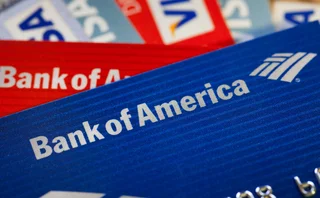BIDS ATS Prepares for Q1 2007 Launch
EXCHANGE TECHNOLOGIES
NEW YORK—The Block Interest Discovery Service (BIDS) is set to sign supplier and hosting contracts that will enable the large-block alternative trading system (ATS) to go live sometime in the first quarter of 2007, says a BIDS spokesperson who declined to identify the potential partners.
Announced in September of this year, the new ATS platform is a joint venture backed by Citigroup, Goldman Sachs, Lehman Brothers, Merrill Lynch, Morgan Stanley and UBS Funds Consortium (DWT, Oct. 2). The platform is being developed by Calgary-based consultancy Alberta Market Solutions.
The new platform was designed using Java architecture and will run on commodity servers using the Linux operating system, says Jim Bird, a director with Alberta Market Solutions. "We use JBoss from Red Hat as our application server and run Red Hat's Enterprise Edition OS," he says.
The firm decided not to customize the operating system's kernel and has selected Oracle 10g as its database and Oracle RAC as its application clustering solution.
Bird declines to say which server vendor the consultancy has selected, but says that the consultancy is looking at Intel's multi-core technology. The firm's desire is to scale the platform horizontally, mix some smaller multi-processor units on the platform's front tier, and save large multi-processor systems for handling the database and applications servers. "We can add boxes as required very quickly," says Bird.
Besides seeking a server provider, Alberta Market Solutions is also in negotiations with a datacenter provider, and is selecting multiple trade-reporting facilities for the BIDS platform.
Alberta Market Solutions designed the new ATS so that large-block orders would not be sliced and diced in a typical fashion, says Paul Hanson, a director with Alberta Market Solutions. "Say you run a commercial bakery: You don't buy your flour at the grocery store. It doesn't make sense to sell a huge block of stock into what is essentially a retail-size and retail-priced market," he says.
Under BIDS' rules, no potential provider of liquidity will be turned away, says Hanson. "If you can provide liquidity to the market, you're welcomed," he says.
To regulate traders' behavior, the ATS has developed an automated system.
The BIDS platform supports only two types of orders—firm orders and indicative orders. Firm orders can be interacted with by any other order on the platform. Each firm order requires only four pieces of information: the symbol, price, a buy or sell indicator, and volume. Optionally, traders can set a minimum size for each order, which could be set per order or a default.
"You can say that my default is always 50 percent and if I give you a 50,000 share order, my minimum is 25,000 shares," says Hanson. "That means orders under that size aren't allowed to touch the original order."
The indicative order, on the other hand, has all of the attributes of a firm order, but requires that the counterparty be invited to participate in the transaction.
A part of the platform builds a profile of each trader's behavior, such as how many successful trades a trader completes and other trading characteristics. "It's similar to eBay's seller and buyer rating system, but instead of your counterparty saying whether you were good or bad, the BIDS system builds the trader's behavior profile," says Hanson.
With this information available, traders can set their filters to only recognize counterparties who meet the trader's behavior profile requirements.
"In essence, if you are bad and your trading behavior is sort of edgy then the trading community will self-police and exclude you from liquidity opportunities," says Hanson. "You are essentially punished by being excluded from liquidity opportunities."
A longer version of this story will appear in the December issue of sibling publication
Waters magazine.Rob Daly
Only users who have a paid subscription or are part of a corporate subscription are able to print or copy content.
To access these options, along with all other subscription benefits, please contact info@waterstechnology.com or view our subscription options here: http://subscriptions.waterstechnology.com/subscribe
You are currently unable to print this content. Please contact info@waterstechnology.com to find out more.
You are currently unable to copy this content. Please contact info@waterstechnology.com to find out more.
Copyright Infopro Digital Limited. All rights reserved.
As outlined in our terms and conditions, https://www.infopro-digital.com/terms-and-conditions/subscriptions/ (point 2.4), printing is limited to a single copy.
If you would like to purchase additional rights please email info@waterstechnology.com
Copyright Infopro Digital Limited. All rights reserved.
You may share this content using our article tools. As outlined in our terms and conditions, https://www.infopro-digital.com/terms-and-conditions/subscriptions/ (clause 2.4), an Authorised User may only make one copy of the materials for their own personal use. You must also comply with the restrictions in clause 2.5.
If you would like to purchase additional rights please email info@waterstechnology.com
More on Trading Tech
After acquisitions, Exegy looks to consolidated offering for further gains
With Vela Trading Systems and Enyx now settled under one roof, the vendor’s strategy is to be a provider across the full trade lifecycle and flex its muscles in the world of FPGAs.
Enough with the ‘Bloomberg Killers’ already
Waters Wrap: Anthony interviews LSEG’s Dean Berry about the Workspace platform, and provides his own thoughts on how that platform and the Terminal have been portrayed over the last few months.
BofA deploys equities tech stack for e-FX
The bank is trying to get ahead of the pack with its new algo and e-FX offerings.
Pre- and post-trade TCA—why does it matter?
How CP+ powers TCA to deliver real-time insights and improve trade performance in complex markets.
Driving effective transaction cost analysis
How institutional investors can optimize their execution strategies through TCA, and the key role accurate benchmarks play in driving more effective TCA.
As NYSE moves toward overnight trading, can one ATS keep its lead?
An innovative approach to market data has helped Blue Ocean ATS become a back-end success story. But now it must contend with industry giants angling to take a piece of its pie.
BlackRock, BNY see T+1 success in industry collaboration, old frameworks
Industry testing and lessons from the last settlement change from T+3 to T+2 were some of the components that made the May transition run smoothly.
Banks seemingly build more than buy, but why?
Waters Wrap: A new report states that banks are increasingly enticed by the idea of building systems in-house, versus being locked into a long-term vendor contract. Anthony explores the reason for this shift.







